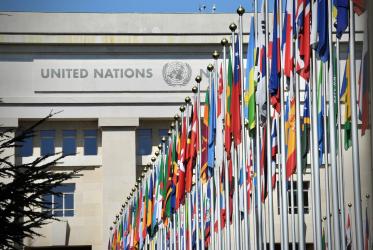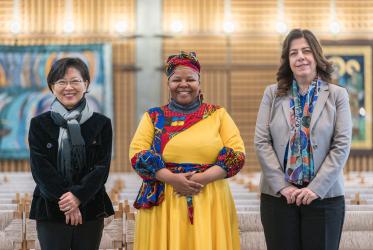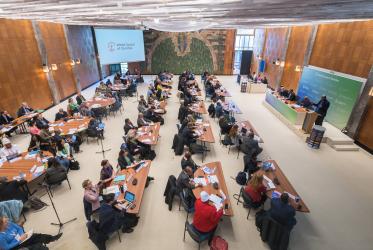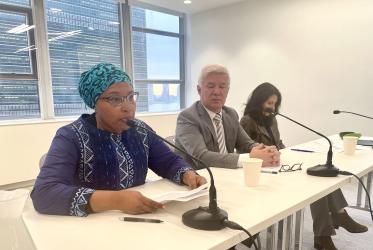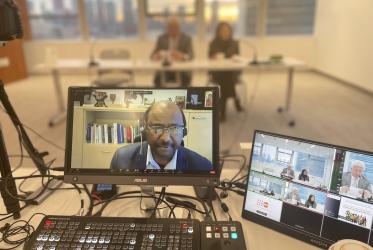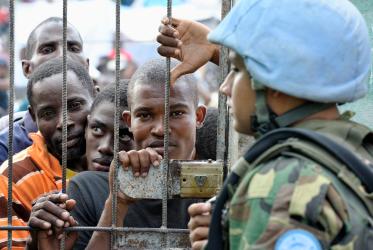Displaying 1 - 20 of 701
28 March 2024
Compendium of Promising Practices of African Faith Community Interventions against Paediatric and Adolescent HIV
Executive Summary
23 March 2024
Three WCC commissions elect vice moderators
08 March 2024
In Angola, WCC takes human rights approach to obstetric fistula
01 February 2024
Churches prepare report for Canada’s Universal Periodic Review
29 November 2023
Beginning soon: 16 Days against Sexual and Gender-Based Violence
21 November 2023
WCC guide raises awareness of obstetric fistula
26 October 2023
A Guide for Churches on the Prevention of Obstetric Fistula
26 October 2023
Philippines delegation meets with WCC to discuss human rights
19 October 2023
Recommended Practices to Combat HIV-Related Stigma
A Guidebook for Local Faith Communities
05 October 2023
Faith Sector Implementation of the Global AIDS Strategy
05 October 2023


